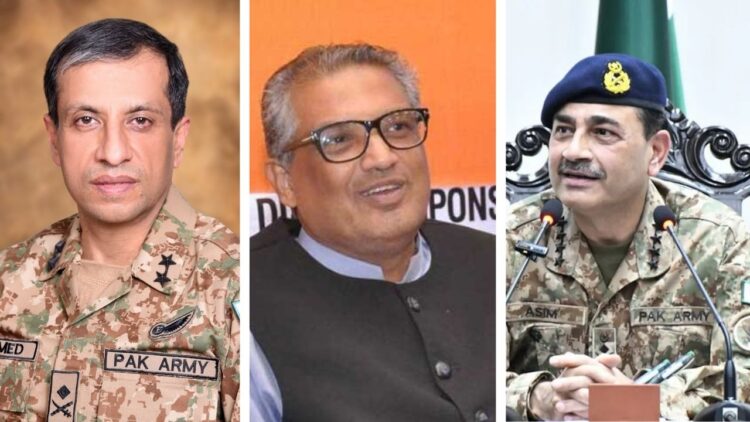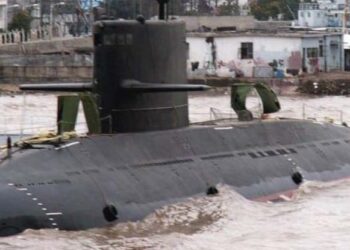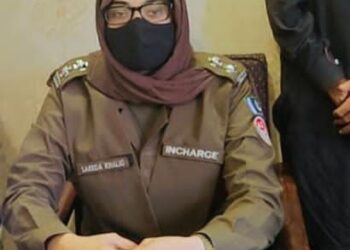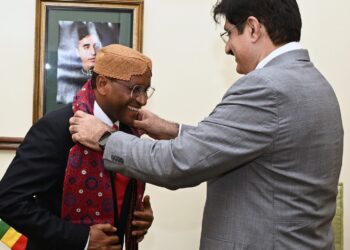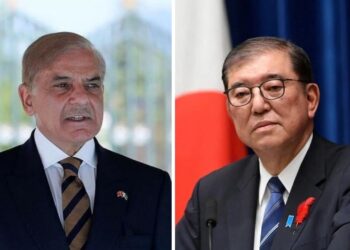ISLAMABAD/BRUSSELS; Field Marshal Asim Munir, Pakistan’s Chief of Army Staff (COAS), has categorically dismissed speculation about possible changes in the presidency and prime ministership, describing them as baseless rumours spread by elements hostile to the government and institutions.
His comments were revealed in a weekend column by senior journalist Suhail Warraich in Daily Jang, who met the army chief in Brussels during his stopover on the way back from a recent official visit to the United States.
According to Warraich, the conversation began with politics, particularly the widespread rumours circulating on social media about a potential change in President Asif Ali Zardari’s position and even a shift from a parliamentary to a presidential system of government.
The reports had even suggested that Zardari might step down in return for a political role for his son, Bilawal Bhutto-Zardari. Dismissing these stories outright, Field Marshal Munir was quoted as saying that such speculation was entirely false.
He noted that both civil and military institutions could not possibly be behind such rumours, stressing instead that these narratives were being pushed by forces opposed to the government and the armed forces, with the intention of sowing discord and political instability.
The army chief’s words echo earlier denials by Interior Minister Mohsin Naqvi and military spokesperson Lt General Ahmed Sharif Chaudhry, who had described the reports as “nonsense.” At the Brussels event itself, Munir reiterated his position, declaring: “God has made me protector of the country. I do not desire any position other than that.”
In his discussion with Warraich, the army chief praised Prime Minister Shehbaz Sharif’s work ethic, particularly his long hours during the May crisis with India, and lauded the federal cabinet’s determination and courage. When asked about the possibility of political reconciliation, he remarked that such reconciliation was only possible if it was preceded by a sincere apology. While he did not specify whom he was referring to, observers believe his comments may have been directed at the Pakistan Tehreek-e-Insaf (PTI) and its jailed leader Imran Khan.
The military continues to hold PTI responsible for orchestrating the violent events of May 9, 2023, when protests turned into attacks on military installations. Dozens of PTI leaders have since been convicted or disqualified, and the army has consistently demanded an apology from Khan. The former prime minister, however, maintains that he was the victim of an “abduction” by paramilitary Rangers and has only conditionally offered to apologise if video evidence proves PTI workers’ involvement in the violence.
On foreign relations, the army chief expressed confidence in Pakistan’s ability to balance its ties with both the United States and China, stressing that “we will not sacrifice one friend for the other.” He also lauded former US President Donald Trump’s peace initiatives, saying Pakistan had been among the first countries to nominate him for the Nobel Peace Prize.
At the same time, he cautioned regional rivals, warning India against destabilising Pakistan through proxies and calling on Afghanistan not to “push the Taliban into Pakistan.” Munir said that while Pakistan had hosted Afghans for decades with generosity, certain elements were now conspiring against Pakistan in collusion with India, which would not be tolerated.
Separately, Lieutenant General Ahmed Sharif Chaudhry, Director General of Inter-Services Public Relations (ISPR), reinforced the military’s stance on counterterrorism during an interactive session with students from Balochistan as part of ISPR’s internship program. He made it clear that anyone providing shelter to terrorists or storing explosive material would be held accountable.
“The army has no interest in taking innocent lives in the name of counterterrorism,” he said, stressing that success in operations comes only when local communities identify militants themselves. He warned that without public cooperation, militants tend to return once the army withdraws from an area.
On calls for a major new operation in Balochistan, the DG ISPR said that Pakistan’s strategy remained intelligence-based operations, designed to target militants, their facilitators and planners, without punishing entire communities.
He underlined that the people of Balochistan were themselves increasingly rejecting militancy, noting that locals are now pointing out terrorists and their supporters. “Go to Balochistan and see how wise and farsighted the people are. They understand Pakistan’s relationship with the province,” he remarked.
General Chaudhry paid tribute to Major Muhammad Anwar Kakar, who had fought valiantly against militants and was instrumental in neutralising terrorists during the attack on Gwadar’s Pearl Continental Hotel. He called him a “great son of the soil” whose sacrifice embodied the spirit of Pakistan’s armed forces.
The ISPR chief also touched upon Pakistan’s founding principles, reminding the students that the country was created in the name of the Kalma, transcending ethnic, linguistic or regional divides. He concluded by saying that the essence of Pakistan, embodied in the declaration “La ilaha illallah,” continues to unite its citizens, reinforcing national cohesion against those who attempt to divide the nation.
Together, the messages from the country’s top military leadership highlight a dual focus: reassurance against political instability, and a call for national unity in confronting terrorism. By dismissing rumours of political engineering and emphasising public cooperation in the fight against extremism, both Field Marshal Munir and the ISPR chief sought to project continuity, stability, and resilience at a time when Pakistan continues to face both domestic political turbulence and regional security challenges.








